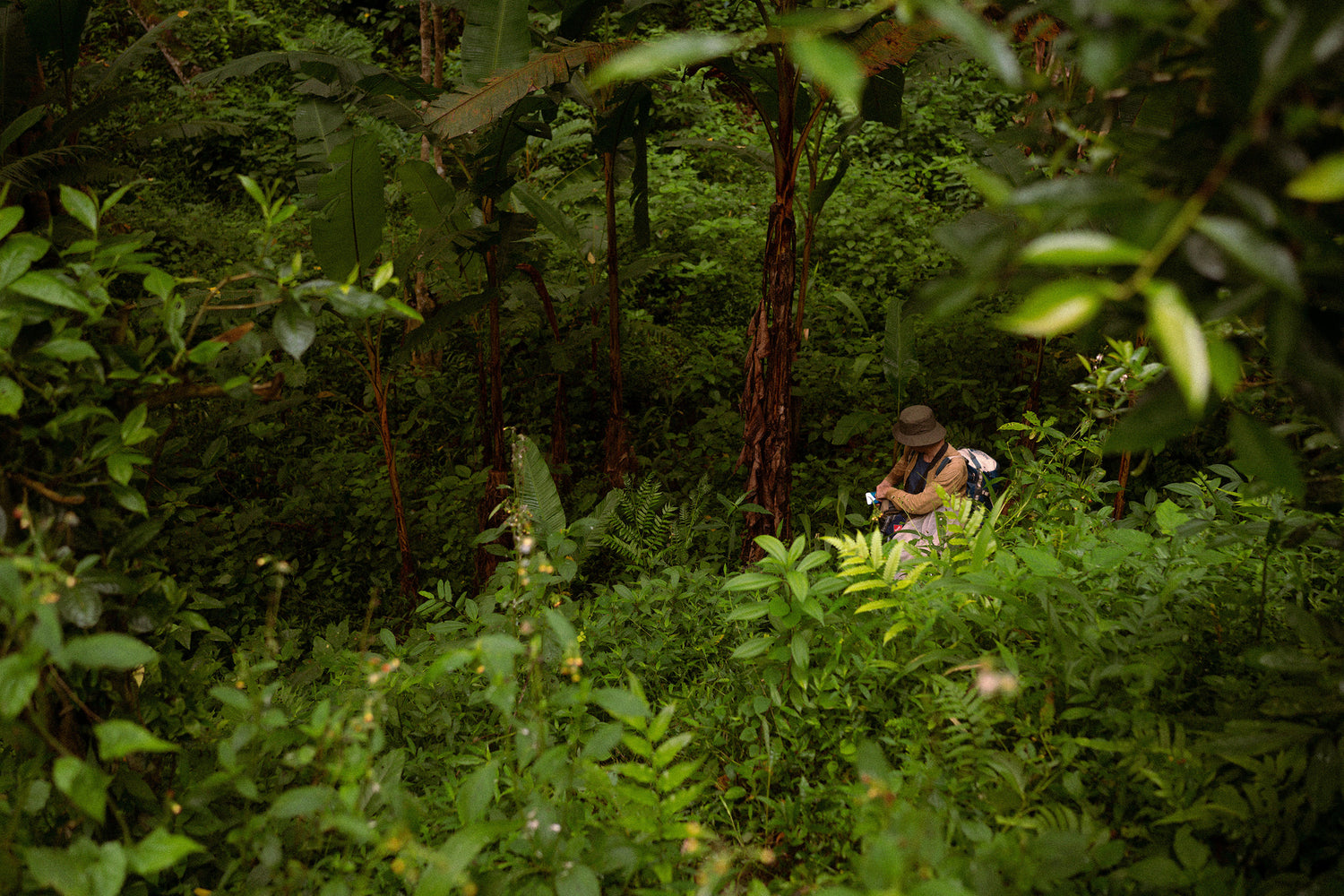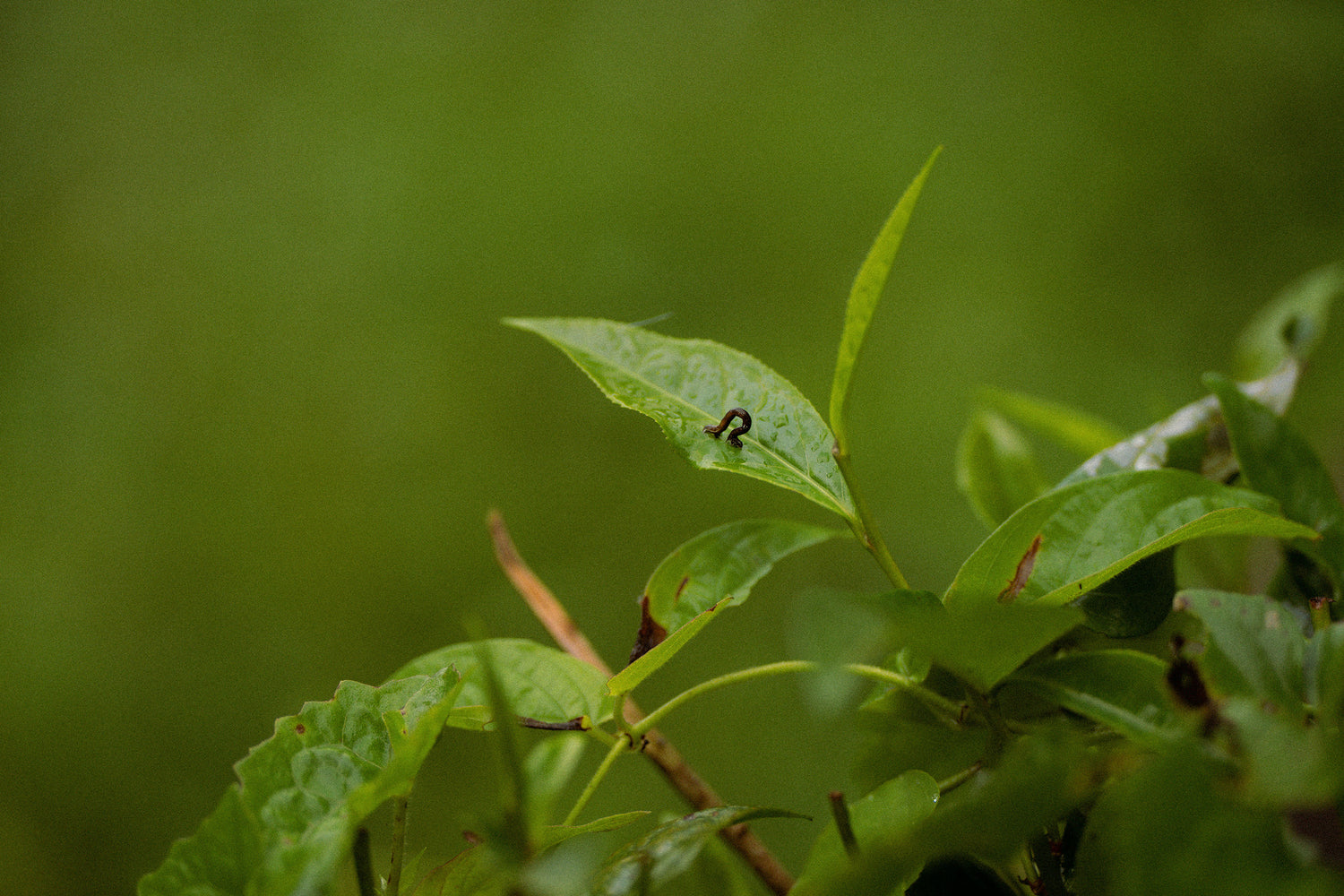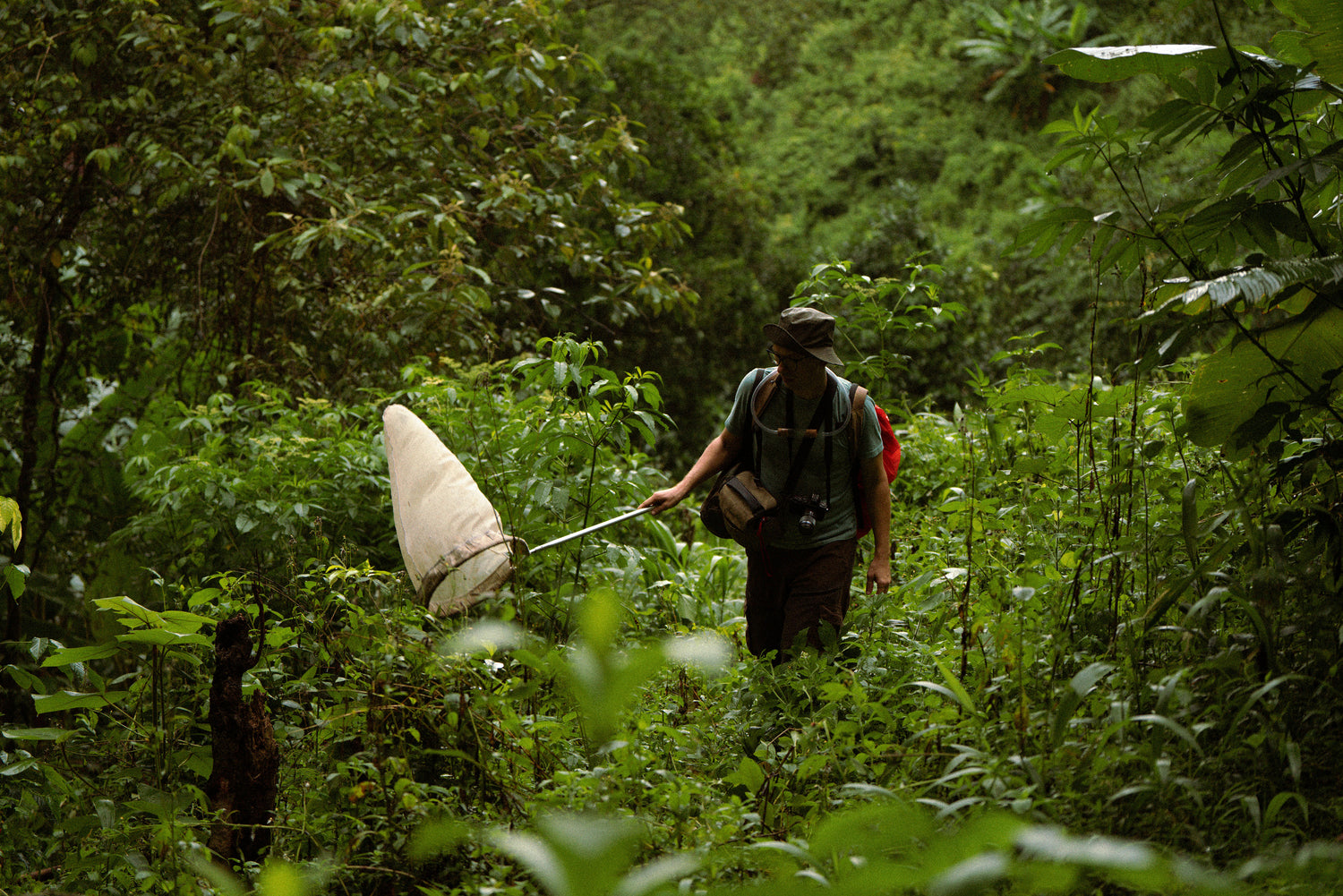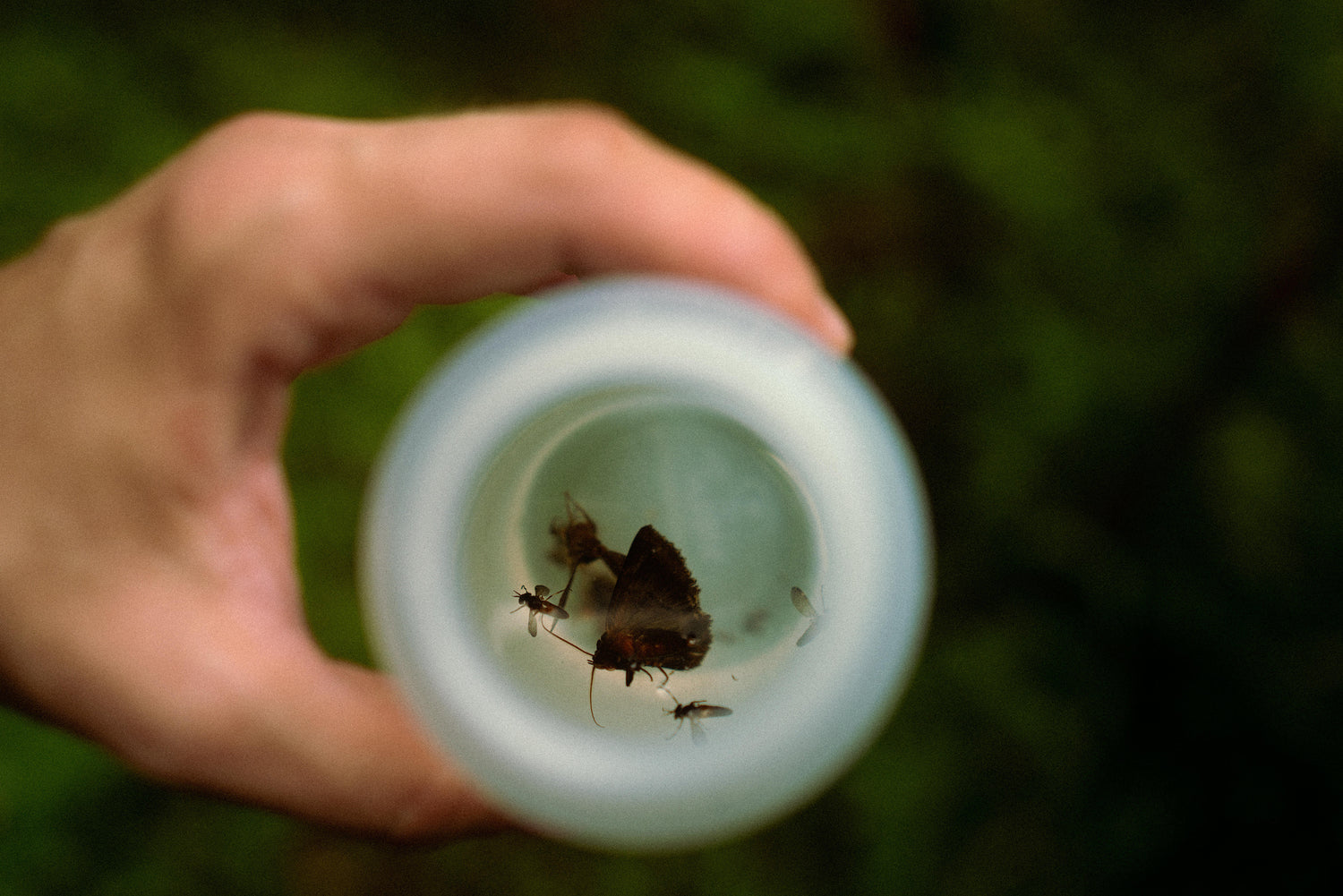Tea Fauna
We work with entomologist Alexey Reshchikov to study biodiversity around tea plants in Southeast Asia. So far this work has resulted in the discovery and description of two new species of wasps, one which has gotten named after our founder Kenneth and given the name "Drepanoctonus rimdahli"
We need an increased knowledge about nature to build successful conservation strategies and with this project we hope to build improved biodiversity databases and inspire ordinary people to learn and care more about what species live amongst us.
Biodiversity research should aim to understand evolution of biodiversity, its immediate conservation, and its use via ecosystem services, agroforestry, pharmacology, environmental management, and many other applications. However for today our knowledge on many organisms and their diversity is poor. This is the case firstly for insects. The goal of The Tea Fauna Project is therefore to study insect diversity in tea habitats across Asia, varying from Camellia dominated forests till agroforestry practices, organic gardens and mass plantations.
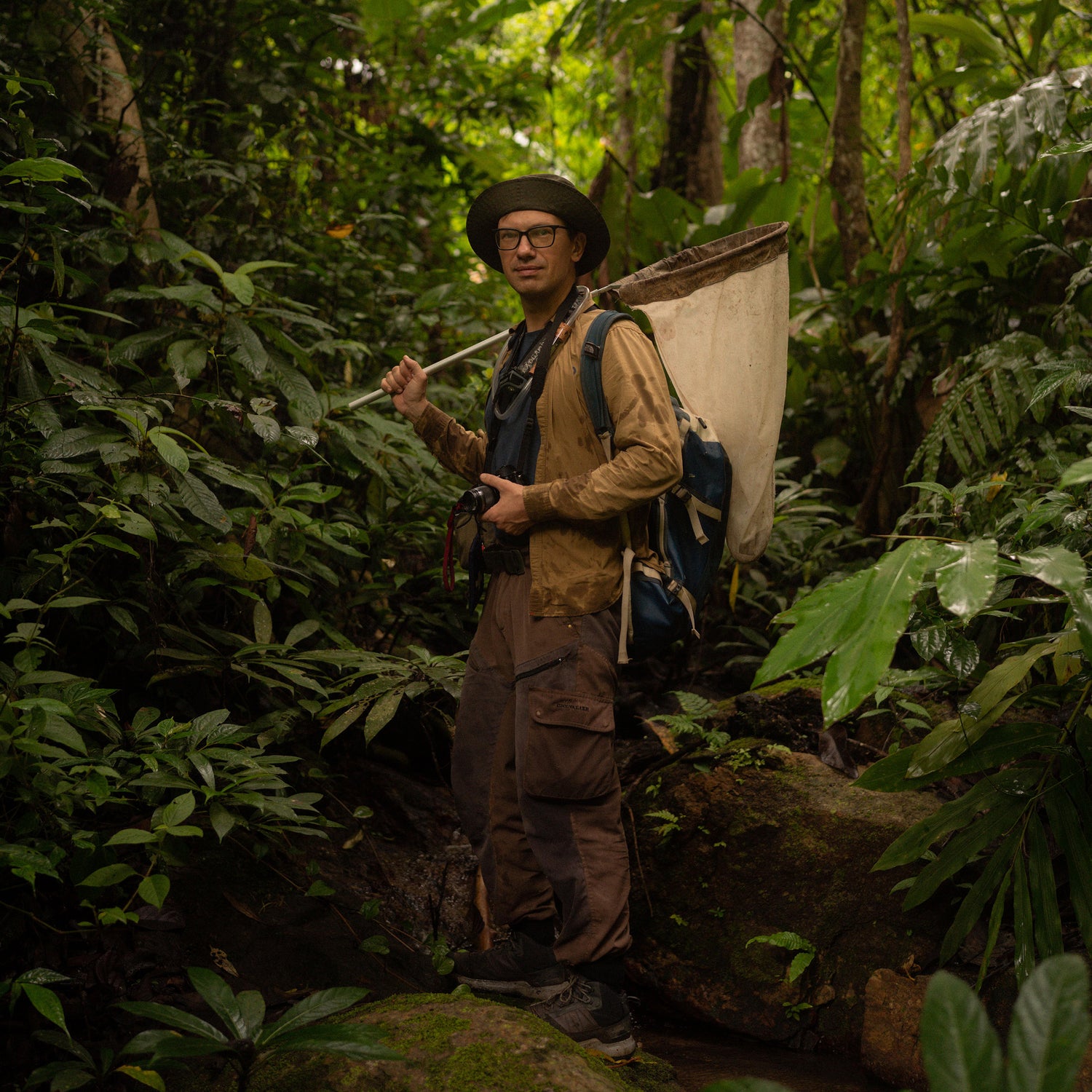
Alexey Reshcikov
Professor in entomology and lead scientist on the Tea Fauna Project.
Systematic
Taxonomic studies are essential for any kind of biodiversity or conservation research. Simply saying to count and to save anything one needs to name it. For our project we chose the Darwin wasps (Hymenoptera: Ichneumonidae) as a target group. It is the most species rich family of Hymenoptera, and probably the largest insect family. They are mysterious and beautiful wasps epicurean parasitoid nature. Each linking with one specific host or several. They are hundred of thousands species still undiscovered around the World.
By virtue of their infinite diversity and frugal style these magnificent wispy wondrous wasps abide enormously obscure. Sexes within one species can come in different form and size, dimensions and colours, they're rainbowed from ivory to brilliant metallic blue or green or black with bright flashes of white patterns. There are large paps in the general information on the group, species descriptions, identification tools, check lists, well curated reference collections for most of the genera, and any ecological data for majority of species.
To date only 238 species were recorded in Yunnan Province of China, and only 10 species in Thailand. In contrast over 4100 species were recorded in roughly similar size territory of Germany. With our Tea Fauna samplings we build the Darwin wasps collection and want to provide as much as possible taxonomic updates along with regional check-lists. While many other groups sampled are awaiting sorting and identification.
All taxonomists are welcome to join our project!
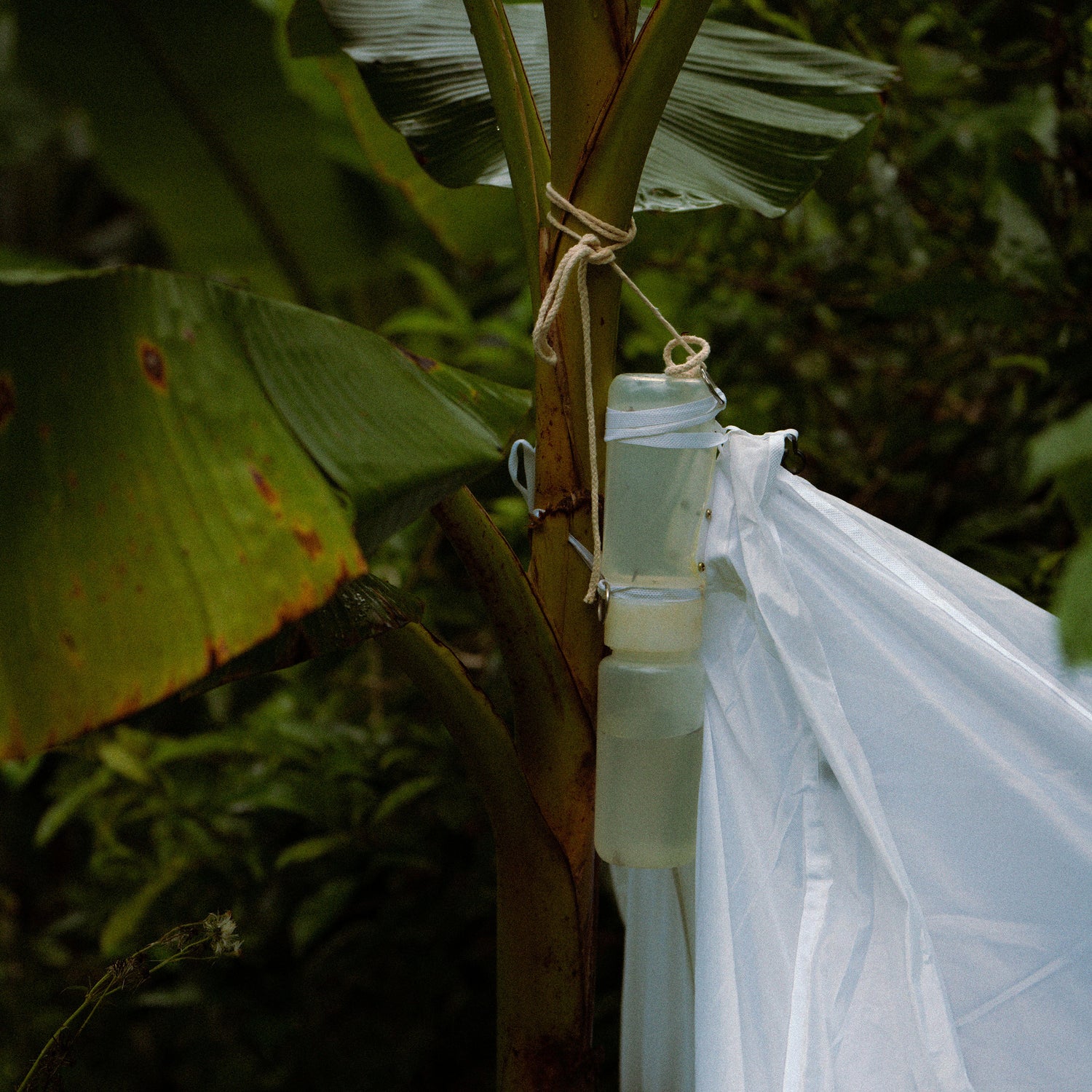
Malaise traps
Our main monitoring method is long term sampling with Malaise traps in different tea habitats. Several sampling sites also are part of elevational Malaise trap transects that aim to obtain large scale biodiversity data and shed the light on respond insects diversity to elevation and global worming.
With data from the tea habitats we can answer a question, how reach these habitats are and what society can do to preserve this diversity. Our proposed study may be the last opportunity to study largely undisturbed Camelia forests' diversity.

